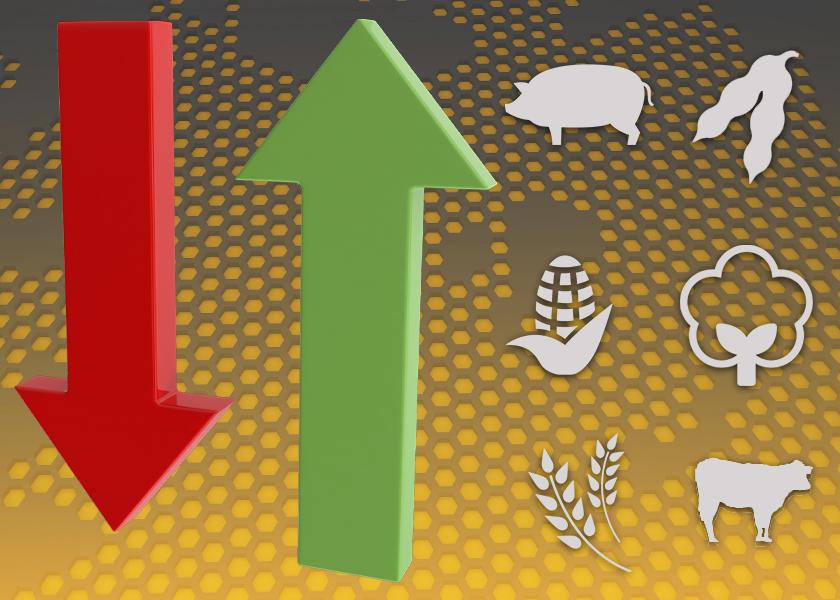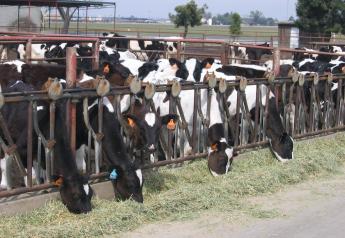Ahead of the Open | February 15, 2022

GRAIN CALLS
Corn: 8 to 12 cents lower.
Soybeans: 18 to 20 cents lower.
Wheat: 13 to 18 cents lower.
GENERAL COMMENTS: Winter wheat led grain and soy complex futures lower overnight on an apparent easing Russia/Ukraine tensions. Soybeans dropped to the lowest level in over a week. Malaysian palm oil futures reached a record high following a surge in early February exports. Nymex crude oil is down around $3 after touching 7 1/2-year highs yesterday, while the U.S. dollar index is about 350 points lower.
USDA reported daily sales of 101,000 MT of soybeans for delivery to Mexico, including 53,500 MT for 2021-22 and 47,500 MT for delivery during 2022-23.
Crop Consultant Dr. Michael Cordonnier slashed his Brazilian soybean crop estimate by 6 MMT to 124 MMT, saying conditions in southern Brazil are worse than expected and there may be additional yield losses due to drought. He also lowered his Argentine soybean crop forecast by 2 MMT to 40 MMT. “Record high or near record high temperatures coupled with scant rainfall over the last several months have resulted in a catastrophe for soybean producers in southern Brazil and the growing season is not over,” he said in a weekly report. For all of South America (Brazil, Argentina, Paraguay, Bolivia and Uruguay), Cordonnier estimates production at 174.6 MMT, which would be down 12% from last year.
NOPA to is expected to report January soybean crush at 186.7 million bu., based on a Reuters survey. If realized, that would top the record crush of 186.4 million bu. in December and be up 1.1% from last year. Soyoil stocks at the end of January are expected to rise to 2.062 billion lbs., which would be up 1.5% from December and 14.6% above last year.
SovEcon raised its 2022 Russian wheat crop forecast by 3.6 MMT to 84.8 MMT, citing favorable weather conditions.
Tyson Foods owns the flock of about 240,000 chickens in Fulton County, Kentucky, that was infected with H5N1 bird flu, government and company officials announced. Birds from the infected flock will be culled and will not enter the food system.
CORN: March corn futures traded within yesterday’s range overnight and will likely take its directional cue today from soybeans. Chart levels to watch include yesterday’s high and low at $6.56 3/4 and $6.42 1/2, respectively, along with the contract high at $6.62 3/4. Cordonnier kept his Brazilian corn crop peg at 112 MMT, but cut his Argentine corn crop forecast by 1 MMT to 50 MMT. For all of South America, Cordonnier forecasts production at 168 MMT, which would be up 24.6 MMT (17.2%) from last year.
SOYBEANS: March soybeans overnight fell as low as $15.44 1/2, the lowest intraday price since $15.32 on Feb. 4. Further price action this week will be closely watched to determine whether soybeans established a near-term top at the March contract’s high of $16.33 posted Feb. 10.
LIVESTOCK CALLS
CATTLE: Steady-firm
HOGS: Steady-firmer
CATTLE: Followthrough from yesterday’s firm close may support live cattle futures, but gains could be limited by slumping wholesale beef. Yesterday’s choppy, sideways trade may continue as traders wait for the cash market to develop, and price action the next few days will be critical in determining whether the recent drop from contract highs last week was a modest correction or a prelude to another downdraft. Packers continue to cut beef prices in efforts to move product. Choice cutout values fell 56 cents yesterday to $273.96, a five-week low. Movement was light at 76 loads. Last week’s average live steer price of $140.48 rose 72 cents from the previous week but wasn’t as high as some anticipated. Cash trade may not be established until around midweek.
April live cattle rose 17.5 cents yesterday to $146.35, down from the contract high of $148.70 posted Feb. 10. Initial support is seen at yesterday’s low of $145.275.
April lean hogs rose 10 cents yesterday to $102.325. Upside targets include the contract high of $107.70 reached Feb. 10, while initial support is seen at yesterday’s low of $101.00.






